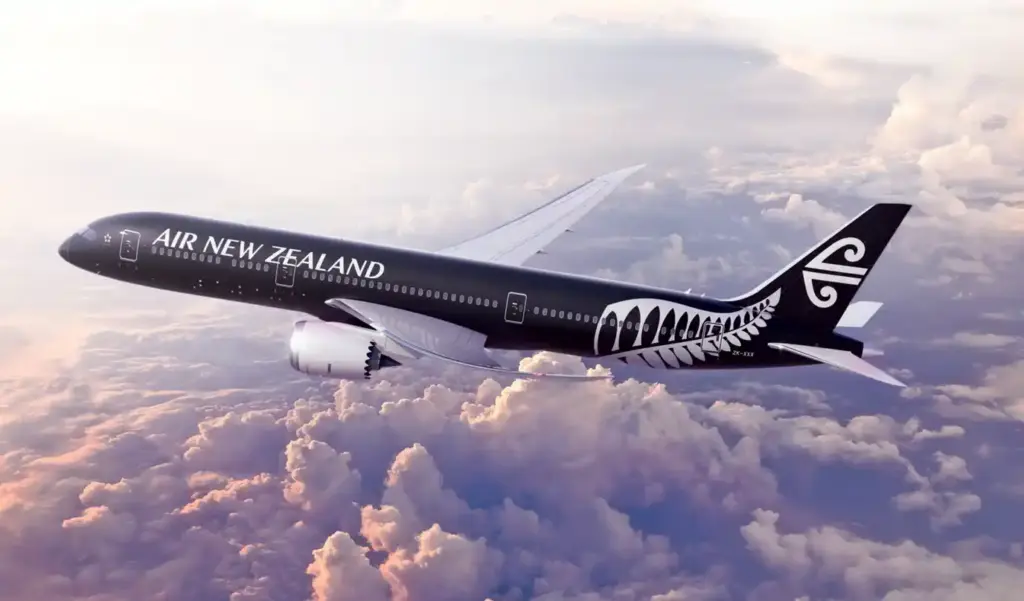Pay and fair work conditions have broken down between Air New Zealand and around 1200 E tū cabin crew members, who have overwhelmingly voted for strike action as they push for a fair deal on their collective agreements. The crew are employed across three separate agreements that cover the airline’s widebody, narrowbody and regional fleet, effectively spanning the bulk of Air New Zealand’s flying network.
Speaking exclusively to New Zealand Travel Trade, E tū Director, Michael Wood said the airline has not yet been served a formal notice of strike action.
“Our members have formally conducted a vote for strike action, and we have advised the public of that. In order for the strike to go ahead, the union has to provide a 14-day notice, and we haven’t done that yet and we will provide that at the correct time. If the strike goes ahead, it will be before the end of 2025, except it will not be in the 7 days immediately before Christmas”.
Wood confirmed negotiations with Air New Zealand are continuing and stressed that settlement remains the union’s preferred outcome.
“Negotiations with the airline are on-going on and we are going to take every opportunity to reach an agreement and if we are able to do that then the strike will not go ahead. There are three separate collective agreements and the issues are slightly different but broadly for our members it’s about wanting to make sure that there is a fair pay offer but also a range of issues around their rosters and not having to trade off or give up important protections around their hours of work just to get a fair pay increase”, added Michael.
Rosters, fatigue and work–life balance at the core
The union says the crew are essentially shift workers, with rosters rotating every month. As is standard in aviation, they work unsociable hours, spend extended periods away from home and are frequently on standby, required to leave at short notice.
“It’s very important that the rules that we have should reflect a reasonable work-life balance and the members should be able to enjoy times with their families and be able to live a life outside of work. The other key thing about the rules is protecting against fatigue as they work in a very sensitive environment and passengers need to be looked after by cabin crews who are alert and not worn out. The members don’t want to see those rules weakened too much just for our members to get a basic pay increase”, said Michael.
The union has previously highlighted that Air New Zealand cabin crew have current guaranteed base salaries of around $60,000, and argues that any pay offer must not be contingent on trading away “hard-won conditions” such as protections around hours and fatigue.
‘Historic’ action across all fleets
Wood characterises the strike mandate as a historic step for cabin crew at the airline.
“It is our hope and expectation that the company will listen to the very clear message that has been sent. Its important to note that this is an historic action. This action covers all three fleets across the widebody, narrowbody and regional and this is not an action that the members take lightly. There is a real sense of anger on not being heard in order to take an action like this. The company does need to hear that message. If the strike action goes ahead, it will have a major impact on Air New Zealand operations. The negotiations for these agreements first started in April so there has been a lot of time spent at the negotiating table, and it is only after a lot of negotiations that the members have decided to take this step.”
Share buy-back puts priorities under scrutiny
In its public statement on the dispute, E tū has also pointed to Air New Zealand’s current capital management programme, highlighting that the airline is in the middle of a $100 million share buy-back. For the travel trade, that juxtaposition is notable. Many New Zealand agents are still managing higher fares, constrained capacity and schedule changes, while relying heavily on Air New Zealand’s network reach and operational reliability. Against that backdrop, a significant share buy-back inevitably raises questions about whether the airline is prioritising shareholder returns over deeper investment in frontline staff, and operational resilience.
For now, Wood says the focus remains firmly on reaching a settlement
“The crew love their job, they love being in this industry and love serving passengers. But they are also extremely determined to make sure that they are heard by Air New Zealand. The best way to avoid any disruption is for Air New Zealand to sit down with us in good faith and negotiate a fair outcome.”


